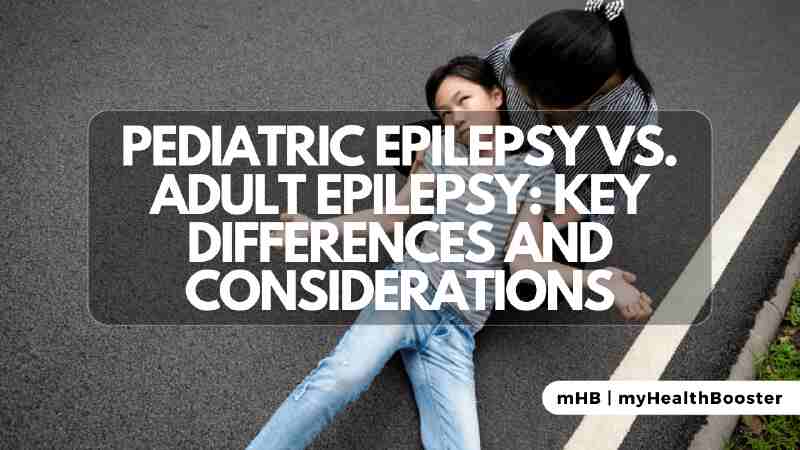Epilepsy, characterized by recurrent seizures due to abnormal brain electrical activity, can manifest at any age, driven by factors like gene mutations, brain malformations, or injury. Recognizable symptoms include high fever, muscle twitching, uncontrollable anger, or confusion. Pediatric epilepsy and adult epilepsy, while sharing the fundamental trait of seizures, exhibit notable differences in causes, symptoms, and treatment approaches.
What is Adult Epilepsy?
Adult epilepsy is often linked to neurological disorders, head trauma, or underlying medical conditions. Although there’s no cure, seizure management through anti-seizure medications or surgeries is feasible. Compared to children, adults can navigate social life more easily, experiencing milder symptoms such as confusion, staring spells, or muscle pain.
What is Pediatric Epilepsy?
Pediatric epilepsy refers to seizure attacks in children, potentially more harmful due to its impact on a child’s mental development. Causes may include high fever, genetic factors, underlying neurological disorders, or a family history of epilepsy. Symptoms involve confusion, muscle twitching, and staring spells. While seizures typically last a few minutes, episodes exceeding 15 to 20 minutes require immediate medical attention.
Pediatric Epilepsy vs. Adult Epilepsy – The More Harmful One!
Adult Epilepsy:
- Causes:
- Head Injury
- Trauma
- Depression
- Seizures
- Underlying Neurological Disorders
- Symptoms:
- Twitching and jerking of arms and legs
- Staring at a point
- Confusion
- Brain fog
Child Epilepsy:
- Causes:
- High fever
- Genetic disorders
- Neurological disorder
- Birth-related issues
- Lack of oxygen during birth
- Head injury
- Family history of the disease
- Symptoms:
- Loss of control over bladder
- Vomiting
- Difficulty in breathing
- High fever
The comparison highlights that pediatric epilepsy poses greater harm, potentially leading to long-lasting mental issues if left untreated.
Consideration for Adult Epilepsy
Managing adult epilepsy involves a supportive environment, medications, natural therapies, or surgery. Considerations include:
- Keeping a calm environment around the patient
- Ensuring a safe home environment to prevent injuries during seizures
Consideration for Pediatric Epilepsy
Handling pediatric epilepsy requires sensitivity and care. Considerations involve:
- Calmly addressing the child during seizures
- Providing emotional support to express ongoing emotions
- Avoiding the stuffing of the child’s mouth
- Seeking immediate medical attention for prolonged seizures
Conclusion
The comparison between Pediatric Epilepsy and Adult Epilepsy underscores the urgency of addressing pediatric epilepsy to prevent potential damage in adulthood. With various treatment methods available, timely intervention can significantly impact the management of the seizure disorder.
FAQs
- What is adult epilepsy?
- A. Adult epilepsy refers to seizures observed in adults due to various medical conditions.
- What is pediatric epilepsy?
- A. Pediatric epilepsy involves seizure attacks experienced by children.
- What causes adult epilepsy?
- A. Adult epilepsy can result from head injuries, strokes, brain tumors, infections, genetic factors, or acquired brain conditions.
- What causes pediatric epilepsy?
- A. Pediatric epilepsy causes include genetic factors, developmental disorders, brain malformations, metabolic disorders, infections, and perinatal injuries.
